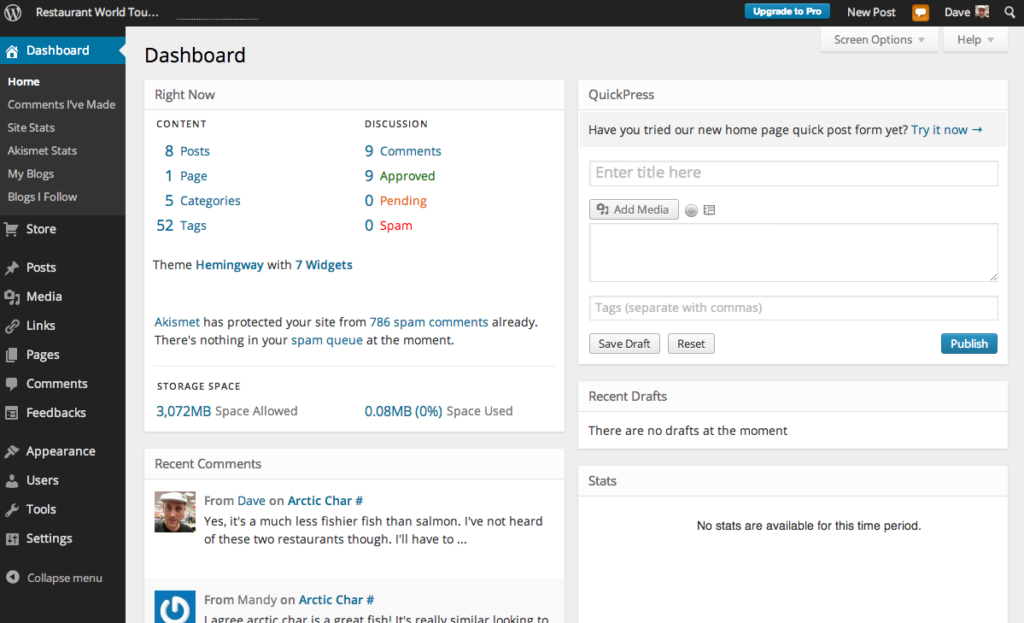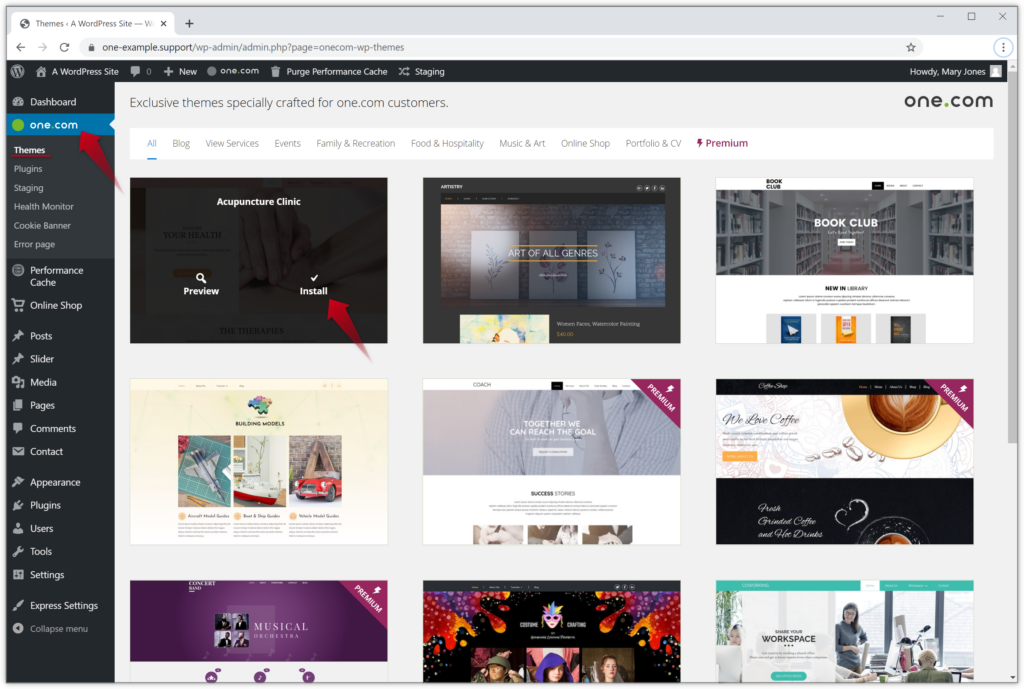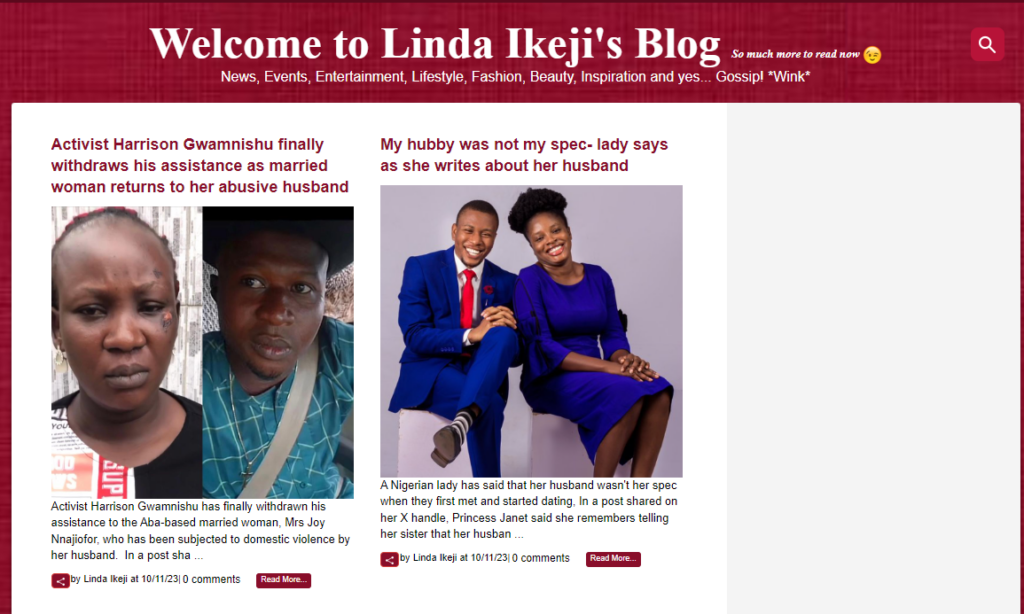WordPress is the world’s most popular content management system (CMS), powering over 40% of all websites on the internet.
With its open-source nature, ease of use, flexibility, and abundant themes and plugins, it has become many bloggers’ and businesses’ CMS of choice.
But does WordPress also work well in the context of Nigeria?
Nigeria is home to a fast-growing community of bloggers, online publishers, and digital entrepreneurs.

As internet penetration and smartphone adoption continues to increase in the country, more Nigerians are turning to platforms like WordPress to have their voices heard online.
In this article, we’ll take a look at the key opportunities and challenges of using WordPress in the Nigerian context.
We’ll examine factors like internet availability, hosting options, e-commerce capabilities, and optimizing for the local audience.
By the end, you’ll have a good sense of whether WordPress is a good fit for achieving your online goals in the Nigerian market.
Brief History of WordPress and its Popularity

WordPress was created in 2003 by Matt Mullenweg and Mike Little as a fork of an existing blogging platform called b2/cafelog.
The initial vision was to create a simple and accessible publishing platform built on PHP and MySQL.
Some key milestones in WordPress’ growth:
- 2005: The first major version 1.5 is released, introducing key features like categories, links manager, and static pages. This helped transition WordPress from just a blogging platform into a more fully-featured CMS.
- 2010: WordPress 3.0 “Thelonious” is released, now powering over 10% of all new websites. The admin UI is refreshed, custom post types are introduced, and improvements are made to plugin and theme APIs.
- 2014: WordPress powers 50%+ of the top 10 million websites, establishing its dominance as the world’s most popular CMS. REST API introduced in version 4.7 to improve integration with other applications.
- 2021: Block editor introduced, allowing content to be assembled with modular blocks instead of pure text. Over 65 million websites now run on WordPress, constituting over 40% of the web.
So what explains WordPress’ immense popularity?
- Open source – the platform is fully open source, enabling a vibrant developer ecosystem and community-driven development
- Ease of use – the admin dashboard is intuitive, and there’s extensive documentation for users of all skill levels to get started
- Flexibility – WordPress is highly versatile, powering blogs, news sites, ecommerce stores, membership sites – you name it
- Themes – Ability to completely change site’s look and feel through the thousands of free/paid themes available
- Plugins – Plugins extend the core features to add all kinds of additional functionality to sites
- Scalability – Can scale from a small blog to a high-traffic site with millions of visits
- SEO-friendly – Good support for SEO out of the box, enabling great search visibility
With these strengths, it’s no wonder WordPress has become the dominant global CMS.
But how does its value proposition hold up specifically in the context of the Nigerian web?
We explore this next.
Challenges of Using WordPress in Nigeria

While WordPress offers immense value, its adoption and usage does come with some unique challenges in the Nigerian context. Some of the key challenges include:
Internet Availability
- Internet penetration still lags behind much of the world at ~47%, though mobile broadband access is expanding.
- Frequent power outages can disrupt internet connectivity for extended periods.
- High costs and slow speeds of broadband internet plans. Fibre optic internet not yet widely available.
- This makes consistent uptime challenging for Nigerian WordPress sites.
Hosting Limitations
- Limited hosting options located physically within Nigeria. Most hosts overseas.
- Hosting costs are relatively higher compared to average income levels.
- Often need to overpay for higher quality overseas hosts to minimize downtime.
- Site speed can be impacted due to lack of local CDN infrastructure.
Limited Local Payment Options
- Integrating payment gateways like PayPal with Nigerian banks/cards can be difficult.
- Alternatives like Paystack gaining traction, but adoption still limited.
- Cryptocurrency adoption still low.
- Harder to monetize sites through online payments/eCommerce.
Search Engine Bias
- Google/Bing algorithms favor websites from developed countries.
- Harder for Nigerian sites to rank for competitive keywords.
- Creates SEO challenges when targeting local Nigerian audience.
Lack of Localized Resources
- Much WordPress documentation not available in Hausa, Igbo, Yoruba. English proficiency can be limited.
- Few WordPress professionals with expertise in Nigerian context.
- Forces reliance on overseas freelancers. Language and timezone gaps can hamper progress.
These challenges can definitely make running WordPress sites more difficult in Nigeria.
But with some prudent strategies, they can be addressed to tap into the platform’s immense value.
Benefits of Using WordPress in Nigeria

While WordPress in Nigeria comes with its own set of challenges, the core benefits that have made it the world’s most popular CMS still apply:
Ease of Use
- Intuitive drag-and-drop site builder, ideal for non-tech users.
- Available in English, allowing Nigerians proficient in the language to easily use it.
- Extensive tutorials and documentation online to learn.
- Admin interface translated into over 70 languages, including Hausa and Igbo.
Flexibility & Scalability
- Can start small with a blog and expand into a media empire.
- Easy to add advanced functionality like social network, courses, membership sites as you grow.
- Handles traffic spikes and large volumes with the right hosting.
Cost Effectiveness
- Open source software with no license fees. Just pay for hosting.
- Tens of thousands of free themes and plugins available.
- Paid premium offerings still cost effective relative to value.
- Own data portability so you can switch hosts easily.
Robust Developer Ecosystem
- Large WordPress talent pool across the globe to hire.
- Many developers willing to work remotely for Nigerian clients.
- Support resources like Stack Overflow fully available.
- Continued innovation via new plugins and themes.
SEO Capabilities
- Built-in best practices allow Nigerian sites to rank locally.
- Clear URLs, meta tags, XML sitemaps and more supported out of the box.
- Advanced SEO functionality available via plugins.
Security
- Regular security updates and patches provided for core software.
- Vetted plugins and themes less likely to contain vulnerabilities.
- Security plugins can further harden sites from attacks.
Active Nigerian WP Community
- Facebook groups, Meetup chapters, and forums available locally.
- Great for collaborating, learning and networking with others.
- Helps bridge knowledge gaps and skill deficiencies.
For savvy Nigerian digital entrepreneurs, WordPress remains a versatile, cost-effective platform that can be molded to work for local needs.
Adopting prudent strategies to address the unique challenges can unlock immense value.
Tips for Optimizing WordPress for the Nigerian Market

Here are some tips WordPress users and developers in Nigeria can follow to optimize the platform for the local market’s unique needs:
Choose Localized Paid Options When Possible
- Using paid Nigerian hosts, themes, plugins improves support and speeds.
- Options like Vantageserver, HostNowNow, Paystack overcome limitations.
- Worth spending a bit more than on generic foreign options.
Integrate Local Payment Options
Offer payment methods like bank transfers, card payments via Paystack.
Accept cryptocurrency payments to tap into growing adoption.
Minimize reliance on overseas gateways like PayPal.
Cache Aggressively
- Use a caching plugin like WP Rocket or W3 Total Cache.
- Serve static assets from a CDN like Cloudflare.
- Reduce server load and improve site speed.
Optimize Images
- Compress images to improve load times and bandwidth usage.
- Use responsive images via the Imagify plugin.
- Enable WebP image support.
Enhance Security
- Mandatory security plugins like Wordfence and VaultPress.
- Auto updates for core, themes and plugins.
- Limit login attempts, monitor traffic, prevent bot attacks.
Create Localized Content
- Ensure UI is translated into Hausa, Igbo, Yoruba.
- Blog/create content tailored to Nigerian audiences.
- Have location-specific business info like address, phone number.
Promote Locally
- Build links from Nigerian sites.
- Participate in local WordPress community forums.
- Sponsor relevant local events/conferences.
- Optimize SEO for Nigerian SERPs.
Recurring Technical Audits
- Audit site’s security, speed, SEO periodically.
- Scan for vulnerabilities, remove bloat, improve conversions.
- Update themes/plugins, deprecated code, inefficient queries.
Use Local Freelance Talent
- Hire Nigerian WordPress developers familiar with local nuances.
- Some overseas freelancers have experience with the Nigerian market too.
- Ensure access to support for ongoing enhancements.
With these tips, Nigerian WordPress users can overcome limitations and build successful online presences.
The platform’s flexibility enables local optimization if you know how to harness it.
Case Studies of Successful Nigerian WordPress Sites
To showcase WordPress’ immense potential in Nigeria despite the challenges, let’s look at a few case studies of successful Nigerian sites using the platform:
Linda Ikeji Blog (https://www.lindaikejisblog.com/)

Linda Ikeji’s blog has become one of the most popular Nigerian online media outlets.
Built on WordPress, the site gets over 100 million pageviews monthly.
Features include:
- Integration with ad networks like Google Adsense for monetization
- Active use of multimedia – video, images, audio
- Intuitive category-based navigation
- Recent redesign to optimize UX
- Regular new content to engage readers
By leveraging WordPress strengths like its media handling capabilities and SEO-optimization, Linda built Nigeria’s top entertainment site.
Read also: Linda Ikeji Blog: Everything You Need To Know
As these examples show, Nigerian individuals and businesses can absolutely harness WordPress successfully despite its challenges in the region.
With strategic implementations, it remains a versatile, cost-effective platform for a variety of online use cases.
Conclusion & Key Takeaways
In summary, here are the key takeaways on whether WordPress can work successfully in the Nigerian context:
- WordPress is the world’s most popular CMS, but faces limitations in Nigeria – Internet availability, hosting, eCommerce, search bias pose challenges.
- The core benefits like ease of use, flexibility, scalability still apply – Enables launching and growing sites with advanced capabilities.
- Nigerian users should optimize WP for local needs – Localize content, focus on speed, enhance security, leverage local talent.
- With the right implementation, WP can overcome limitations – As shown by successful Nigerian sites like UDSS Saelo, Linda Ikeji and Jobberman.
- A strategic approach is key to tap WP’s immense value – Know limitations and address them, without losing the platform’s versatility.
So while WordPress in Nigeria requires more effort to implement well, it remains an excellent, cost-effective foundation for building sites that engage Nigerian audiences.
With the strategies covered in this guide, Nigerian users can overcome limitations and unlock the platform’s immense potential.
Read also:


